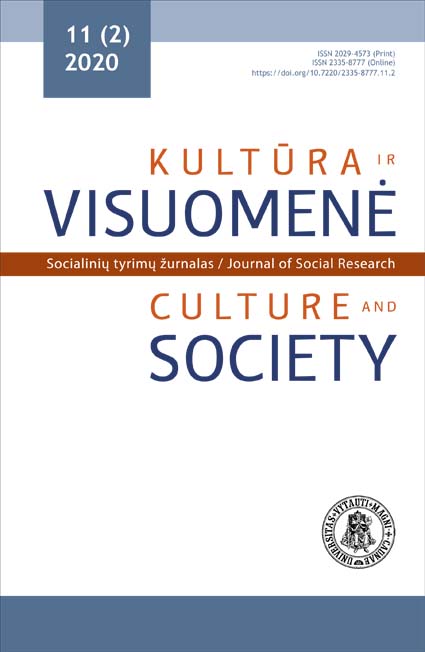Deviantinės etiketės reikšmė rekreacines kanapes vartojantiems pilnamečiams asmenims: poveikis ir įveikos mechanizmai
The Significance of Deviant Label for Adults who use Recreational Cannabis: Effects and Coping Mechanisms
Author(s): Stasys StirbinskasSubject(s): Criminology, Substance abuse and addiction
Published by: Vytauto Didžiojo Universitetas
Keywords: Deviant label; Recreational cannabis; Criminalization of drugs;
Summary/Abstract: Cannabis – the most popular illegal drug in Lithuania. Due to an increasing amount of scientific evidence questioning the effectiveness of criminalization based drug control policies, this philosophy seem to be losing it‘s dominant status. However, it‘s still widely popular in a lot of different countries including Lithuania: punishments for it‘s violations were hardened in 2017. There are a lot of scientific studies discussing the effects of drug criminalization on a macro scale. However, there is a lack of research discussing how criminalization based policies effect the personal lives of people who use these illegal substances. Consequently, the criminalization of drugs fosters the environment which is ideal for spreading and reproducing negative discourses about illegal drugs and it‘s users. Along with criminalization itself, these negative discourses help to create and define the deviant label that is associated with the use of these illegal substances. Therefore, in order to understand how the deviant label affects the life of cannabis users, it‘s is important to understand the effects of both of it‘s constituting parts – the criminalization of drugs and the existing negative discourses related to the usage of cannabis. Lastly, in order to understand the full spectrum of effects that the deviant label produces, it‘s vital to uncover the coping mechanisms that are being applied by the cannabis users in order to combat these negative effects. Analysis of the collected data has revealed that the criminalization of drugs reciprocally interacts with the negative discourses about cannabis and it‘s users in a process of two way legitimization. Furthermore, the criminalization phenomenon also acts as a metanarrative, because it contains hidden discourses, legitimizing the institutional powers associated with it‘s implementation and application. The results of the research also revealed that the impact of criminalization at the individual level is much broader than the statistical categories currently used to describe it‘s effect on a macro level; stigmatization is the primary consequence of negative discourses about cannabis and it‘s users; the features of coping mechanisms that helps to minimize the consequences of deviant label contains measures that reduces stigmatization and protects against the threats of criminalization.
Journal: Kultūra ir visuomenė: socialinių tyrimų žurnalas
- Issue Year: 11/2020
- Issue No: 2
- Page Range: 7-30
- Page Count: 24
- Language: Lithuanian

